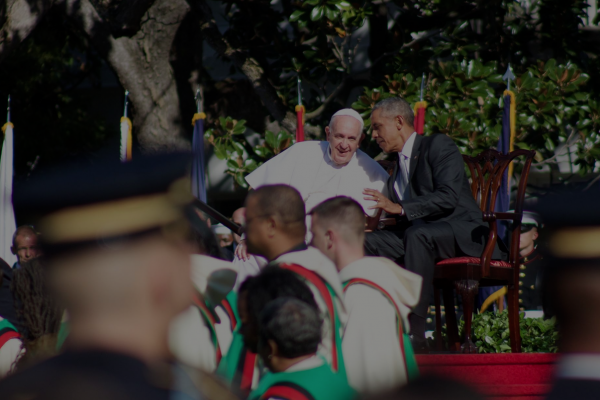Evangelicals don’t have a pope, or even a single spokesperson. We’re not a single denomination like the Catholic Church, so we lack a comparable hierarchical structure. Particular denominations have presidents or general secretaries, but no one human being serves as the representative figure of God on earth within the evangelical faith. Rather, following the teaching of Genesis 1:26-27, evangelicals believe all humanity bears the image of God. In fact, one of the functions of the early evangelical movement was to democratize the faith — to proclaim all humanity’s equal access to God through Jesus.
So, why did my heart shake with anticipation at the thought of being in this pope’s presence? Here’s why: More than any other person, since St. Francis of Assisi (his namesake), this pope has embodied the values and priorities of Jesus. He has shown us what it might have been like to walk the earth with Jesus himself — what it might have been like to watch him embrace the leper, to watch him defend the adulterous woman calling the Pharisees not to judge, to watch Jesus challenge the values and priorities of the religious establishment of his day. He has been a vision to watch.
Read the Full Article

